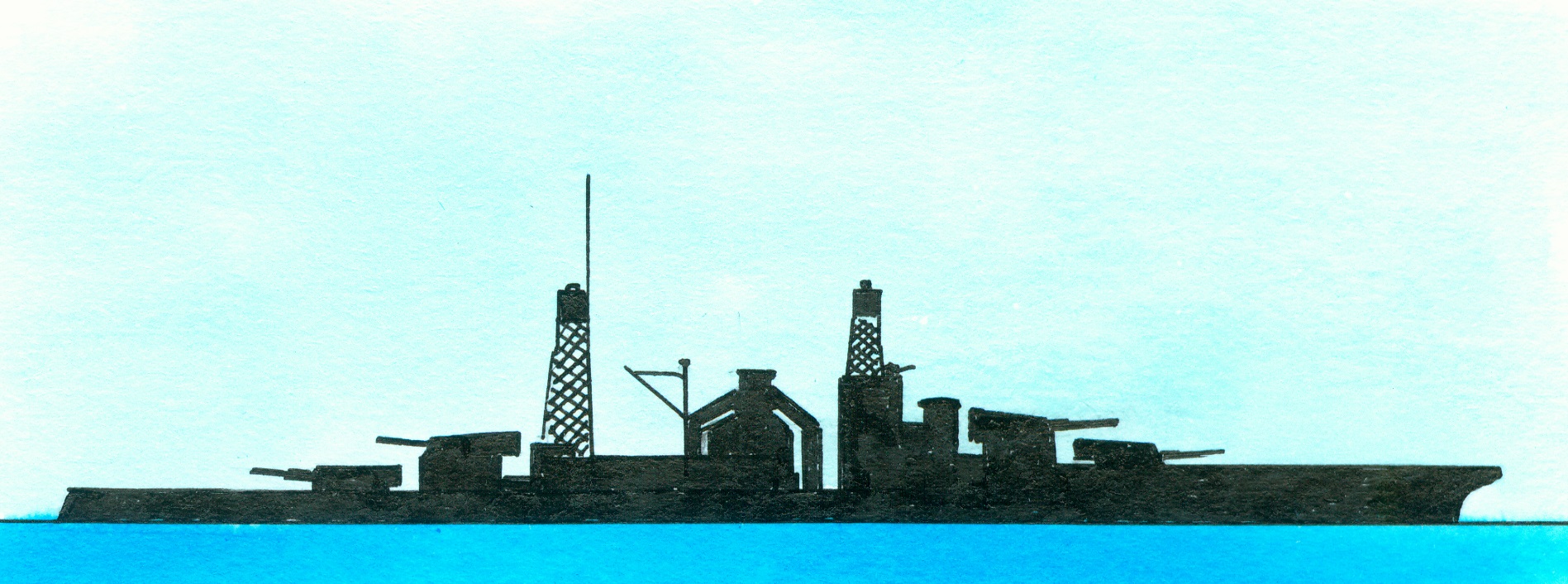Colorado-class
Photo courtesy of Bob Darby. Original source
South Dakota-class
North Carolina-class
10 March 1922. Original source
10 March 1922. Original source
Laid down at the new York Naval Shipyard on 15 March 1920, suspended on 8 February 1922, further building cancelled when completed for 38,5% on 17 August 1922, stricken on 10 November 1923, sold to broken up to the Steel Crap Company at Philadelphia, USA on 25 October 1923 which was completed on 15 November 1924.
Of the South Dakota-class battleships consisting of the South Dakota, Indiana, Montana, North Carolina, Iowa and Massachusetts, preceded by the Colorado-class and succeeded by the North Carolina-class. Building authorized on 4 March 1917 but not executed to be able to use the results of the Battle of Jutland between the British and German navies on 31 May-1 June 1916 and that all building capacity was needed to built smaller warships. The Washington Naval Treaty of 6 February 1922 which was to limit the strength of the navies of the USA, Japan, France, Italy and the United Kingdom finally made an end of the in 1920 started building on 8the February followed by breaking up the unfinished hulls in 1923.
General technical specifications. Displacement 43.900 tons/43.200 long tons (design)-42.100 tons/41.400 long tons (standard-47.800 tons/47.000 long tons (full load) and as dimensions 660 (waterline)-684 (over all) x 106 x 33 or 200-208 x 32 x 10 metres. Fitted out with 12 White-Forster boilers and 4 x Westinghouse steam turbines electric drives supplying via screw a total horsepower of 60.000 hp. The maximum speed was to be 23 knots and with a speed of 10 knots was their range 8.000 nautical miles. Their crew would number 1.616 men. The armour consisted of a 20,3-34,3cm/8-13.5” thick belt, 8,9-15,3cm/ 3,5-6” thick decks, 20,3-34,3cm/8-13.5” thick bulkheads, uptakes with a thickness of 22,9-34,3cm/9-13.5” while the barbettes and conning tower were protected by respectively 11,4-34,3cm/4,5-13.5” and 20,3-40,6cm/8-16“ and the main gun turrets by 45,7cm/18” (face)-22,9-25,4cm/9-10” (sides)-12,7cm/5” (top)-22,9cm/9” (rear). The armament consisted of 4x3-40,6cm/16” .50 caliber Mark 2 guns, 16-15,2cm/6” /53 caliber Mark 13 guns, 4/6-7,6cm/3” dual purpose /50 caliber guns, 4-6pd Hotchkiss saluting guns and 2-53,3cm/21” submerged torpedo tubes in the broadsides.






